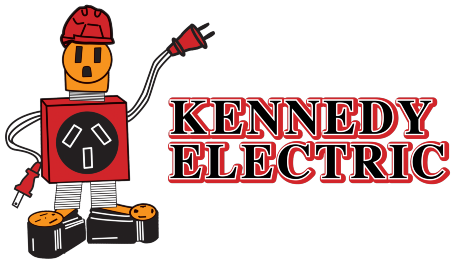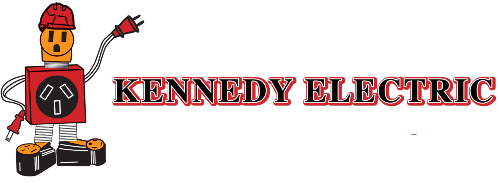Upgrading Residential Wiring To Meet Modern Electrical Demands
Between smart home systems, advanced appliances, and constant device charging, power consumption has skyrocketed over the past few decades.
Homes today depend on electricity more than ever before. Between smart home systems, advanced appliances, and constant device charging, power consumption has skyrocketed over the past few decades. Unfortunately, many older homes still rely on outdated wiring that was never designed for this level of demand. Worn or undersized electrical systems struggle to keep up and pose serious safety hazards.
Upgrading residential wiring guarantees a home operates safely, efficiently, and in compliance with modern standards. A professional wiring upgrade strengthens performance, improves reliability, and prepares the home for future technology. For homeowners looking to modernize, this investment delivers both immediate and long-term benefits.
Recognizing the Signs of Outdated Wiring
Most homeowners don’t think about their electrical wiring until something goes wrong. Yet, certain signs clearly indicate that an upgrade may be overdue. Flickering lights, buzzing outlets, or frequent breaker trips suggest that circuits are overloaded or wires are deteriorating. Outlets that feel warm to the touch or emit a faint burning smell are even more serious warning signs of overheating and potential fire risk.
Homes built before the 1980s may still feature outdated materials like aluminum wiring, knob-and-tube systems, or ungrounded outlets. These systems were once standard but no longer meet current safety or efficiency requirements. Knob-and-tube wiring lacks grounding altogether, while aluminum wiring expands and contracts with temperature changes, loosening connections and increasing fire risk.
Addressing these issues early protects your home and family while improving overall electrical performance. A certified electrician can inspect the system, identify weaknesses, and recommend upgrades to meet today’s electrical codes and household needs.
Boosting Capacity for Modern Appliances
Today’s homes are filled with high-powered electronics and energy-intensive appliances. Kitchens feature double ovens, refrigerators with built-in screens, and high-speed blenders. Home offices rely on multiple computers, monitors, and printers, while entertainment spaces use large TVs and surround-sound systems.
Older wiring simply wasn’t built to handle these electrical loads. As a result, many homeowners experience overloaded circuits, tripped breakers, or dimming lights when multiple devices run simultaneously. Upgrading residential wiring and the electrical panel increases capacity, allowing power to be distributed evenly across the home.
Dedicated circuits for heavy appliances such as air conditioners, washing machines, and EV chargers help prevent overloads and improve efficiency. Upgraded copper wiring with proper grounding guarantees consistent voltage, protecting valuable equipment from electrical surges and extending its lifespan.
Enhancing Safety with Modern Standards
Electrical safety standards have advanced dramatically over the years, and a modern wiring system is far safer than older alternatives. Ground fault circuit interrupters (GFCIs) are now required in moisture-prone areas like bathrooms, kitchens, laundry rooms, and outdoor outlets. They instantly cut power if an imbalance in current is detected, protecting against dangerous shocks.
Arc fault circuit interrupters (AFCIs) add another layer of safety by detecting sparking or arcing that can lead to fires. Tamper-resistant outlets prevent children from inserting objects, reducing the risk of injury. By upgrading wiring and installing these modern safety devices, homeowners significantly reduce their chances of electrical accidents.
Electrical fires remain one of the most common causes of residential damage, and outdated wiring is often to blame. Professional upgrades replace deteriorating materials with insulated, grounded wiring that can handle today’s higher current levels safely and efficiently.
Improving Energy Efficiency
Upgrading wiring isn’t just a safety improvement—it also enhances efficiency. Older systems often waste electricity due to poor conductivity, resistance, or voltage drops. With new wiring and properly rated circuits, power flows more effectively, reducing waste and energy costs.
Homes that use LED lighting, smart thermostats, and efficient appliances benefit most when supported by an updated electrical infrastructure. Smart home integration allows lighting, HVAC, and appliances to operate on schedules or in response to occupancy, optimizing power use without sacrificing comfort.
Additionally, modern wiring can support energy management systems that monitor consumption in real time. Homeowners can track usage patterns, identify waste, and make adjustments that lead to measurable savings. A well-designed electrical system powers the home and helps conserve resources for the future.
Preparing for Future Technology
Technology evolves quickly, and a modern home should be ready to adapt. Residential wiring upgrades prepare homes for innovations that continue to reshape daily living. From electric vehicle (EV) charging stations to solar panel installations, future-focused wiring supports both convenience and sustainability.
Smart home automation relies on interconnected systems that control lighting, temperature, and security. Pre-wiring for these systems during an upgrade makes future installations faster, cleaner, and less expensive. Dedicated circuits for smart appliances, home theaters, and whole-home Wi-Fi systems keep everything running smoothly without overloading older circuits.
For homeowners considering renewable energy solutions, upgraded wiring guarantees compatibility with solar arrays, battery storage systems, and home generators. These technologies require precise load balancing and dedicated infrastructure that older systems simply can’t provide. Preparing now prevents costly rewiring later and allows for seamless integration as technology continues to advance.
Hiring a Certified Electrician
Electrical work is never a DIY project. Even small mistakes in wiring can create long-term safety issues and costly damage. Hiring a certified electrician guarantees that upgrades are performed safely, efficiently, and in full compliance with local electrical codes.
Certified electricians evaluate the entire electrical system—from the main service panel to outlets and fixtures—before designing an upgrade plan. They determine whether your home’s existing infrastructure can support additional circuits or if a new panel is required. Proper wire sizing, secure connections, and balanced loads are critical to prevent overheating and guarantee reliability.
Professional installations also include permits and inspections to confirm compliance with safety standards. Attempting electrical upgrades without proper training or certification risks your property and voids insurance coverage in the event of an electrical fire or injury.
Routine Maintenance for Long-Term Performance
After upgrading, ongoing maintenance keeps an electrical system performing at its best. Over time, even new components can loosen or wear under heavy use. Regular inspections by a professional electrician identify potential issues before they become major problems.
Loose wiring, aging breakers, or minor corrosion can reduce efficiency or create safety hazards if ignored. A maintenance plan typically includes tightening connections, testing circuit performance, and checking GFCI and AFCI functionality.
Routine maintenance also extends the lifespan of the system and confirms that the home remains compliant with evolving electrical codes. Scheduling periodic inspections—especially in older homes or high-demand households—helps prevent costly downtime and unexpected repairs.
Investing in a Safer, More Efficient Home
A comprehensive wiring upgrade delivers benefits that go far beyond safety. Homeowners enjoy more reliable power, improved energy efficiency, and better performance from every connected device. Modern electrical systems accommodate today’s needs and anticipate tomorrow’s technology.
From lowering utility costs to reducing the risk of electrical fires, investing in professional wiring upgrades increases both comfort and peace of mind. For those planning home renovations or expansions, upgrading wiring before adding new rooms, appliances, or systems guarantees the entire property is built on a solid electrical foundation.
In regions experiencing rapid growth and modernization, local electricians are helping homeowners transition from outdated wiring to energy-efficient systems that meet strict safety and environmental standards. Upgrading your home’s wiring is not just an improvement—it’s a long-term investment in safety, performance, and sustainability.
FAQs
How do I know if my home’s wiring is outdated?
Common signs include flickering lights, frequent breaker trips, warm outlets, and buzzing sounds. Homes built before the 1980s often have aluminum or knob-and-tube wiring, which should be evaluated by a certified electrician.
Can I keep my old panel and just replace the wiring?
In some cases, yes. However, if your electrical panel is outdated or undersized, your electrician may recommend upgrading it to safely handle modern power demands.
What are the benefits of upgrading to copper wiring?
Copper wiring offers superior conductivity, durability, and resistance to corrosion compared to aluminum. It supports higher electrical loads safely and lasts significantly longer.
Can new wiring help lower my energy bills?
Yes. Modern wiring reduces resistance and power loss, allowing appliances and lighting to operate more efficiently. Combined with energy-efficient devices, this can lead to noticeable savings.
Is rewiring my home disruptive?
Professional electricians plan the upgrade to minimize disruption. Depending on the home’s size and layout, most rewiring projects can be completed in a few days with minimal mess.
Do I need a permit for a residential wiring upgrade?
Yes. Electrical upgrades require permits and inspections to guarantee compliance with local building codes and safety standards. A licensed electrician handles this process for you.
Can upgraded wiring support electric vehicle chargers or solar panels?
Absolutely. Dedicated circuits and modern electrical panels are essential for supporting EV chargers, solar systems, and other high-demand technologies.
How often should my electrical system be inspected?
Most experts recommend professional inspections every two to three years. Homes with older wiring or heavy energy use may benefit from annual checkups.
Is upgrading wiring worth the investment?
Yes. Rewiring improves safety, increases home value, and prevents costly electrical failures. It also prepares your home for future technology and energy-efficient systems.
What should I look for when hiring an electrician?
Choose a licensed, insured electrician with proven experience in residential upgrades. Local professionals familiar with regional codes and climate conditions offer the best results.
Kennedy Electric is a reliable full-service electrical company serving residential and commercial customers in Citrus, Hernando, and Pasco Counties. We offer electrical repairs, boat lift wiring, remodels, low voltage lighting, generator hookups, RV power, electrical inspections, fan installation, home lighting, new circuits, panels, and more.


